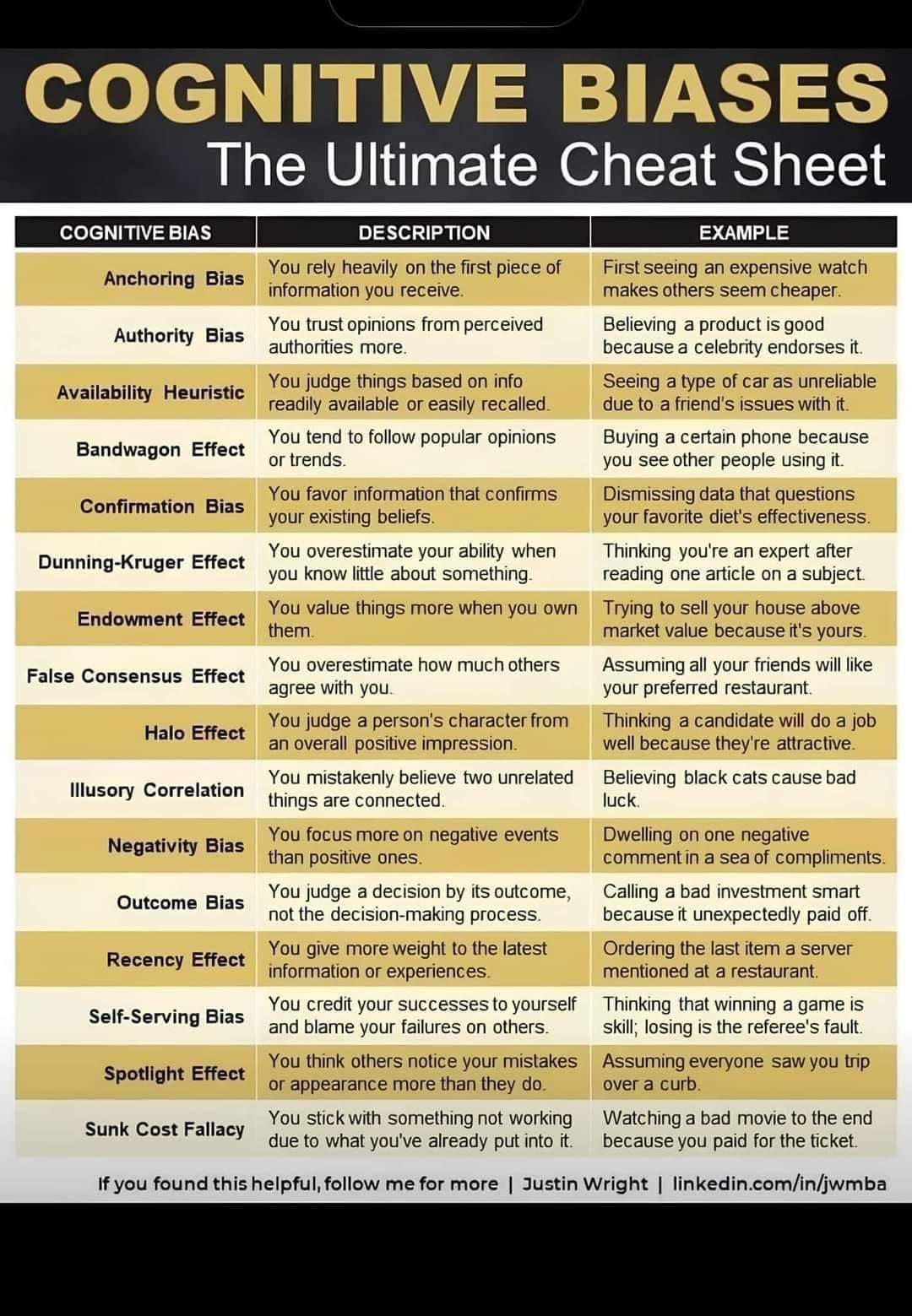this post was submitted on 23 Oct 2024
585 points (97.0% liked)
Science Memes
12009 readers
2688 users here now
Welcome to c/science_memes @ Mander.xyz!
A place for majestic STEMLORD peacocking, as well as memes about the realities of working in a lab.

Rules
- Don't throw mud. Behave like an intellectual and remember the human.
- Keep it rooted (on topic).
- No spam.
- Infographics welcome, get schooled.
This is a science community. We use the Dawkins definition of meme.
Research Committee
Other Mander Communities
Science and Research
Biology and Life Sciences
- [email protected]
- [email protected]
- [email protected]
- [email protected]
- [email protected]
- [email protected]
- [email protected]
- [email protected]
- [email protected]
- [email protected]
- [email protected]
- [email protected]
- [email protected]
- [email protected]
- [email protected]
- [email protected]
- [email protected]
- [email protected]
- [email protected]
- [email protected]
- [email protected]
- [email protected]
- [email protected]
- [email protected]
- !reptiles and [email protected]
Physical Sciences
- [email protected]
- [email protected]
- [email protected]
- [email protected]
- [email protected]
- [email protected]
- [email protected]
- [email protected]
- [email protected]
Humanities and Social Sciences
Practical and Applied Sciences
- !exercise-and [email protected]
- [email protected]
- !self [email protected]
- [email protected]
- [email protected]
- [email protected]
Memes
Miscellaneous
founded 2 years ago
MODERATORS
you are viewing a single comment's thread
view the rest of the comments
view the rest of the comments

Like i said, if an authority on a subject (an academic or an experienced individual) is only stating a priori or a posteriori facts about a topic, then it's all well and good. However, if they're discussing a topic for which there is no commonly agreed opinion or for which the answer exists but they are not privy to, it would be wrong for them to use that authority to claim correctness over another, say an interlocutor.
I have a PhD in 'x' related field, so even though I'm not too sure, I must be right
This does not however mean that their opinion isn't worth listening to. We would be better off listening to category 3 authority figures than anyone else on subject specific matters.
On the topic of your book, i completely agree with the premise of politicians and their efforts in trying "dumb down" the populace. Something which, in America at least, will only be exacerbated by a Trump presidency and his most likely implementation of the Project 2025 manifesto. I think many of these things are due to the conservative party aiming to transform America into a Christian theocracy which would practically make it an authoritarian state.
I also think it's worth noting the public's own influence in undermining scientific praxis through the rise of anti-intellectualism in the form of flat earthism, climate change denialism and Christian theocrats. There are many people who are being given a platform who do not deserve one e.g Terrence Howard and his pseudoscience. The public seemingly has a fascination with engaging with these absurd opinions from category 1 authorities which contributes to the rise of anti-intellectualism. There's also the demonization of university by especially Gen Z and the downplay of scientific reasoning in favour of "freedom of thought" a.k.a wokeism. I use this term in the form it's used today which is excessive political correctness, cancel culture, or an overemphasis on perceived victimhood. There are many liberals here who will not be pleased by my use of the term, but i think it's worth not only condemning conservatives, but also the ideologies of many radical liberals (my opinion on this is however not steady, so i am open to change).
There are so many more factors at play here, such as postmodernism (which is thankfully unpopular now), populist anti-elitism, and the pursuit of knowledge only when it has material benefit, but this is already long as it is
You hit the nail on the head for the conservative agenda, though that is not as impressive as it once was since they all have started saying the quiet parts out loud. Anyone with enough brain cells in close contact to notice that Jesus was about as anticapitalist as you could possibly get is appalled and concerned for their safety. At least all of the ones I know are.
To your point on the authority of a postdoctoral level person who assumes they are right in hubris, I feel like they have kinda earned it. It is also likely that their "wrong" is going to be far closer to right than that of a lay. I am personally a polymath, so I don't find lay topics for myself very often, but when I do, I do listen to topical experts and respect what they say, while checking the voracity of things that feel off to me using reputable journals and prepublication articles on the likes of arXiv.
If someone is lay and they are either unable of unwilling to do the diligence to verify the person claiming topical authority, then they really need to just take what is said at face value and not enter the more global conversation aside from trying to learn more (eg asking questions). I am so tired of my numbskull uncle claiming that Anthony Faucci doesn't know how viruses work of some distant relation bitching about how student loan forgiveness is theft from taxpayers. My uncle knows nothing about virology and my distant relation couldn't parse economic principles to save his life, but there they sit, acting as counter-authorities to people with doctorates and 40+ years of professional experience. That is the part I want to see stop. If you have a Masters degree, fine, argue with the expert, but if you have never stepped foot inside a classroom where that topic was being taught, just don't. Your opinion is woefully uninformed and thus not worth the CO2 you expended to voice it.
I do like your take on the societal and philosophical underpinnings for the Death of Expertise. It gels well with some things and gives me some avenues to investigate should I finally get fed up with this world enough to write it. Until that time, I will just keep Farnsworthing it.